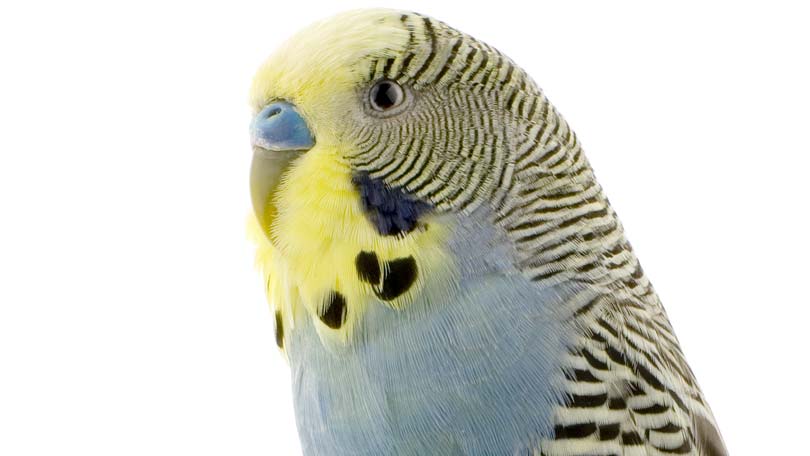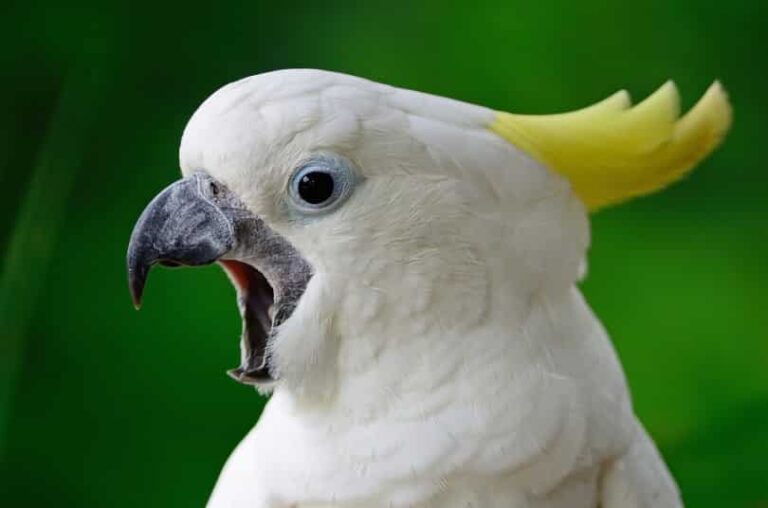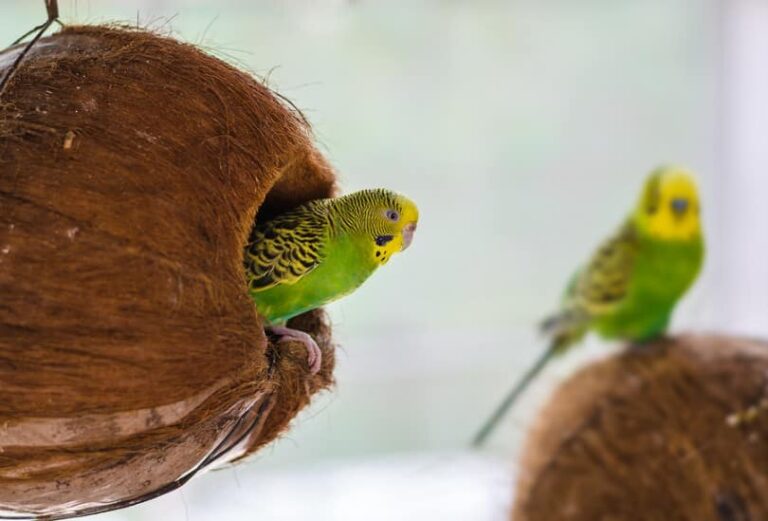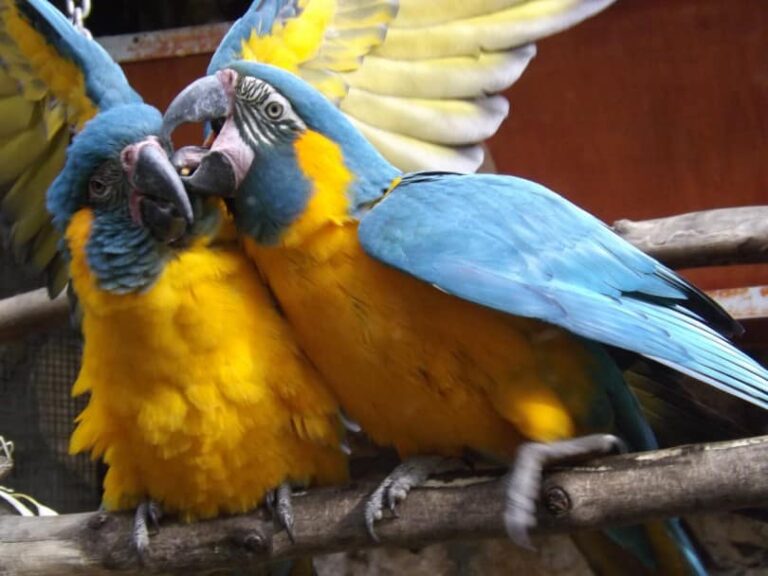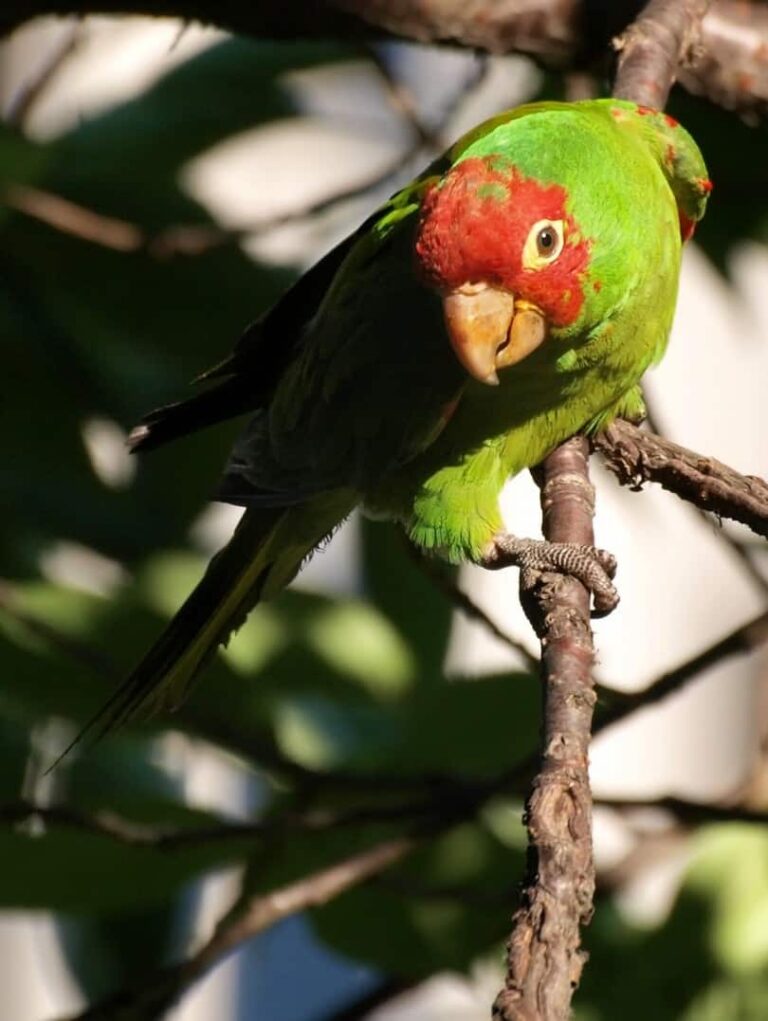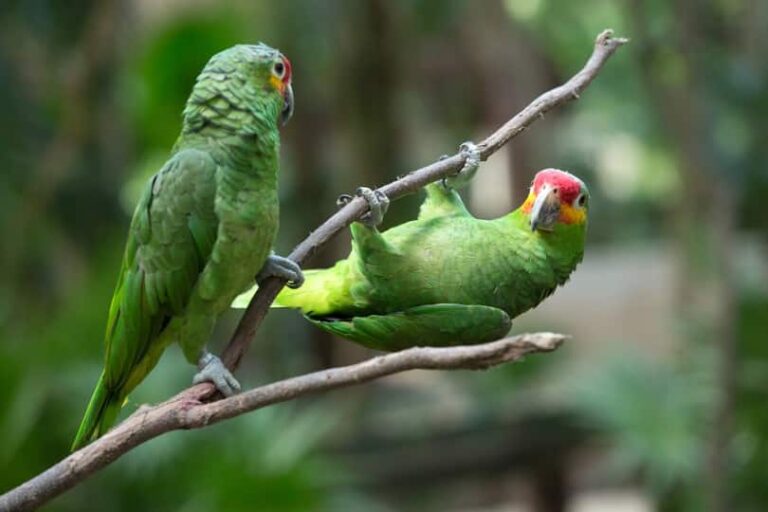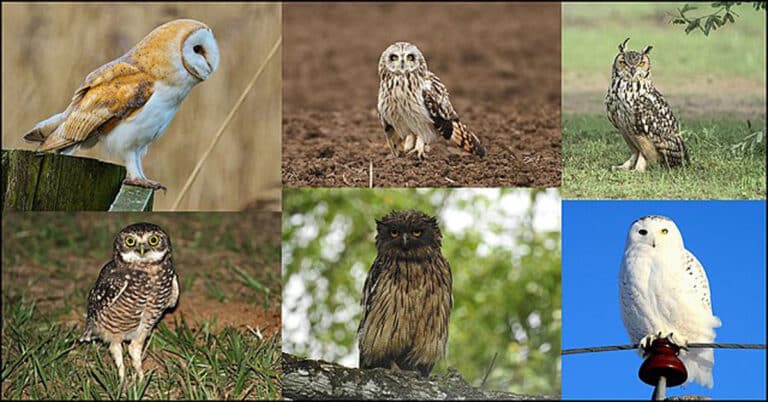Feeding Your Budgie
Budgies are hardy little parrots that can live for ten years if given proper care. One of the most important factors in determining your Budgie’s health and longevity is the quality of nutrition your bird receives. Not so long ago, parrot owners were advised to feed their birds a diet consisting almost entirely of seeds. Bird enthusiasts now know that seeds contain high levels of fat, and when fed alone, do not provide a balanced diet. Most experts recommend feeding your Budgie a pellet-based diet supplemented by seeds, grains, fresh fruits, and vegetables.
Pellets and Seeds
Pellets specified for parrots are available in nearly all pet shops and can be ordered from online sources that sell bird supplies. The advantage of a pellet diet is that vitamins and minerals have been added, making the pellets more nutritional than seeds alone. Which brand of pellet to use is a personal choice, but look for a quality pellet that does not use artificial preservatives, sugar, salt, animal fat, or food colorings. Budgies are small birds, so be careful not to purchase large bags which will become stale before your bird consumes all of the food. Pellets are best stored in an airtight container and kept in the refrigerator or another cool, dark place to avoid mold or bug infestation. Look for pellets that are intended for Budgies, as your pet cannot easily consumes pellets that are too large for its beak.
There are drawbacks to pellets. The most significant of these is that your bird may not eat them. A Budgie that has been exclusively fed a seed diet will often refuse pellets. Never hastily switch your bird from a seed based diet to a pellet based diet without being absolutely certain your pet is eating the pellets, as a small bird can starve to death in as little as forty-eight hours. Introduce pellets gradually by adding them to your Budgie’s regular diet. When you see that your Budgie is eating some of pellets, gradually decrease the seeds while increasing the pellets. Do not eliminate all seeds from your bird’s diet. Seeds have nutritional value and provide your bird with more stimulation than pellets alone. Because pellets tend to be uniform in shape, size, and color, and do not require hulling, they are a less interesting food for your Budgie.
If your Budgie refuses to eat pellets, or if you choose to feed a seed based diet, look for a high quality seed mix that contains a variety of seeds, as well as dried fruits and vegetables, and has been fortified with vitamins. Again, do not buy seeds in bulk unless you have a flock to feed, as seeds can become stale, lose their nutritional value, and can become infested with bugs. Store seeds as you would pellets, in an airtight container placed in a cool, dark place. Add the new seed mixture to your Budgie’s current diet and make changes gradually, always ensuring that your bird is eating.
Fruits and Vegetables
Feeding your Budgie fresh fruits and vegetables each day is a must. Even if your bird refuses them initially, continue to provide new foods. Parrots are creatures of habit and may stare at a new food day after day before deciding to try it, so don’t give up easily. It is important for your bird to learn to eat a varied diet. Variety not only increases the likelihood that your Budgie is receiving all the nutrients it needs, but also adds interest for your bird.
Berries are a good fruit source for Budgies and convenient for owners, as they require little preparation. In addition to raspberries, blueberries, blackberries and strawberries, offer your parrot apples, bananas, plums, pears, melon, peaches and pineapple. If you do not eat much fruit yourself, it can be expensive to buy a variety of fruits for one small bird, as most of it will spoil before your Budgie can eat it. Many grocery stores offer fresh fruit salads, which can be a good option. Make sure that the fruit salad contains no sugars or syrups and consists only of fresh diced fruit.
Vegetables that your bird may enjoy include corn, carrot, squash, broccoli, spinach, watercress, green beans, peas, kale, zucchini, and red and green peppers. These will need to be cut into small pieces that your Budgie can manage. To make the process less labor intensive, consider using a small food processor to chop vegetables. A cheese grater can also be used. Fresh vegetables are always best, but some frozen vegetables also can be kept on hand to feed in a pinch. Corn and peas freeze well and are the right size for small beaks.
While tomatoes, lettuce, and cucumbers are not toxic to birds, be careful to feed these sparingly, if at all, as their high water content could cause diarrhea.
All fruits and vegetables must be thoroughly washed before feeding them to your Budgie. Do not feed soft or rotten produce to your pet. All fresh fruit must be removed from your Budgie’s cage daily, as uneaten portions will spoil and make your bird sick. Over time, you will determine how much your bird eats and adjust portions accordingly.
Grains and Other Foods
In their native Australia, Budgies routinely feed on grasses and will enjoy whole grain breads, cooked oatmeal, or dry whole grain cereals. Budgies can be feed boiled rice, cooked pasta, and boiled potatoes. Beans such as chickpeas and black-eyed peas are often relished, but these must first be soaked or cooked. Budgies are omnivores and will eat hard boiled egg, as well as cooked chicken removed from the bone. Dried crickets intended for reptiles can also be offered to your bird. Chicken and eggs should be removed within an hour or two, as these tend to spoil quickly and can make your bird sick.
Vitamins, Minerals, and Grit
If your Budgie eats a varied diet, vitamin supplements are not necessary, but should be given to all birds that are picky eaters or eat a seed based diet. Vitamins are available in liquid form that can be added to water, or in a powdered form to sprinkle on food. Birds that receive no natural sunlight should be given a vitamin D3 supplement to help them assimilate calcium. Good sources of calcium for your Budgie include boiled eggshells and oyster shells. Mineral blocks and cuttlebone can also be provided.
Parrots, including Budgies, hull their seeds, and do not need grit to help them break the food down. Grit should be avoided as it can lead to crop impactions.
Foods to Avoid
Some foods should never be fed to your Budgie. Certain seeds, including orange pits and apple seeds, are considered toxic to birds. Avocadoes, onions, and mushrooms also fall into this category and should absolutely be avoided.
Feeding your Budgie chocolate, coffee or tea is dangerous. Too much caffeine can cause an increased heart rate, leading to collapse or seizures. Alcohol and carbonated foods should never be given to birds. Use common sense when feeding your Budgie from the table, and do not offer fried items or food that has been seasoned with salt, sugar, and pepper. Birds are lactose intolerant and should not be fed milk based products. Although some owners feed their birds small amounts of cheese, this can cause a sour crop and is not a good idea.
Providing quality food from a variety of sources is the best way to ensure that your Budgie’s nutritional needs are being met. Discard uneaten fruits and vegetables promptly and provide clean water at all times to ensure your bird’s good health and longevity.

Having discovered a fondness for insects while pursuing her degree in Biology, Randi Jones was quite bugged to know that people usually dismissed these little creatures as “creepy-crawlies”.

